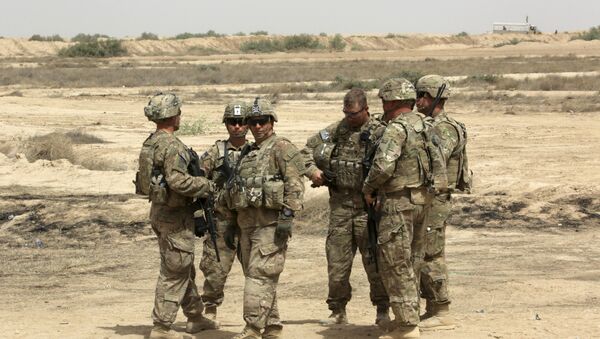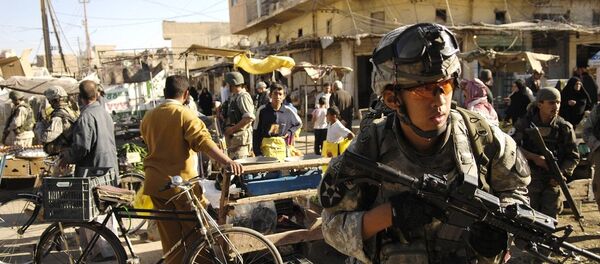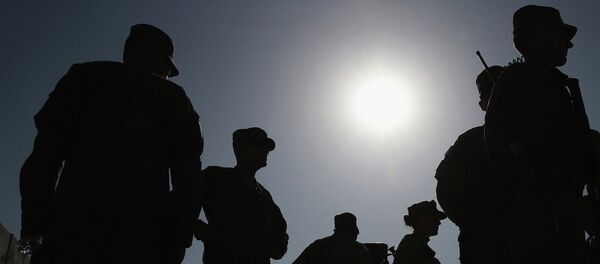According to him, the newly-deployed force will add about one hundred US military service members to the roughly three and a half thousand which are already in Iraq.
Earlier this week US Secretary of State Ashton Carter announced that the US will send Special Forces to Iraq to intensify pressure on ISIL.
Robert Naiman policy director for Just Foreign Policy NGO spoke to Sputnik in an exclusive interview about the deployment of US troops to Iraq.
“It is true that in the US political context there is more concern about large number of uniformed regular US Army troops for combat versus small number of specialized highly trained Special forces which are primarily supposed to be helping others do combat.”
He further said that although there is concern in Washington about the recent moves to send more Special Forces, he does not expect a big reaction. “If you compare the concern about the Special Forces being sent to Iraq to the concern of people being shot outside like in San Bernadino in the US, that concern is way more, thousand times more concern.”
“In Iraq it’s clear that there is the Iraqi army, Shia militias and the Kurdish forces so these are the forces that the US is helping. But in Syria it’s more complicated as the US can’t, for political reasons, appear to be on the same side as the Syrian army because the US has an alliance with the Kurds and Turkey has a political problem with the Kurds.”
Naiman said that in Iraq, there are a couple of steps on the road to rallying the Sunni Arab forces against ISIL. He said that this has worked before but what failed was the political side, keeping the agreement together, forming a more stable political arrangement.
“The US took Ramadi before but who do you give it to? The present Iraqi government has not shown its ability to control these Sunni Arab interests to make a political compromise if necessary with non-ISIL types that would allow a stable control and keep the jihadists out.”
He concluded that, “The Iraqi government is somewhat different now and the US and Iran has a different relationship now, it is possible that a broader political alliance, perhaps Russia, could help stabilize these areas after the jihadists are driven out.”
He further spoke, “So far this is not like it was in Vietnam. There is a consensus even among most of the Republicans in the US that we don’t want to see tens of thousands of US ground troops in combat. So far Obama has made decision to not send troops in.”




